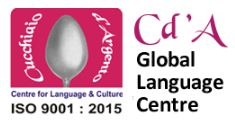Linguapura Training prepares students for the TOPIK measures proficiency based on reading, writing, listening comprehension in three different levels: beginner, intermediate, and advanced.

Korean Language – TOPIK (Test of Proficiency in Korean)
TOPIK is a Korean language proficiency test that measures a non-native speaker’s ability for expression and comprehension in the Korean language. TOPIK is administered by The National Institute for International Education (NIIED) that operates directly under the Ministry of Education, Science and Technology and is responsible for the general management of the test.
This includes supervising institutions administering the test domestically and overseas. TOPIK measures proficiency based on reading, writing, listening comprehension in three different levels: beginner, intermediate, and advanced. The test is further evaluated through six grades with two matching levels for each.
TOPIK Test Structure
TOPIK test has two levels – TOPIK-I and TOPIK-II.
Test takers get a level between 1 and 6 based on their total score in the test.
Test takers who meet the requirements will be issued a formal certificate with one of six possible grades:
TOPIK Levels & Language Skills Required
Following is the brief description of the language skills attained at each level.
When is TOPIK conducted?
TOPIK test is conducted 6 times a year in total
In most countries, The TOPIK I test is often held in the morning, while the TOPIK II test is held in the afternoon. If you want to, you can take both tests on the same day. The tests are usually held on Sundays (in some countries on Saturdays as well).
What is the validity period of TOPIK score?
TOPIK score or certificate is valid for 2 years.
Foreign language training for Adults & Children
Being fluent in a foreign language can open up many opportunities. Whether you want to set yourself apart from the crowd professionally or simply meet new people and immerse yourself in a new culture during your travels.
Established in 2008, we are an institute that offers quality classroom and online courses at the Individual and Corporate levels.Our dedicated faculty with over 15 years of relevant industry experience, and approximately 2 lakh training hours (yes, you read that right!) under our belt, helps us provide a quality environment that is focused on your learning.
Whether you’re looking for a classroom or online course, we have all of the languages you need! At Linguapura, our goal is to set up our students for growth, success, security, and ultimately prosperity. It’s never too late to learn a new language, so go ahead and broaden your horizons!

Language Fluent is an institute dedicated to foreign language in Wardha which offers online classes, classroom coaching program, the official and internationally recognized certifications, Immersion Course, and many cultural, literary and academic activities throughout the year.

Korean is the official language of the Republic of Korea (South Korea) and the Democratic People’s Republic of Korea (North Korea). Around 75 million people speak this awesome language and it ranks 18th as the most used language in the world. Korean is of course a luminous language.

The curriculum of the courses is latest and industry-relevant. It is planned to equip you attain a level of competence in contemporary Korean language which is adequate for communication. The basic course is a foundation program ideal for those who have no knowledge in the language.

Cd’A Global Language Centre is an ISO certified premium and most trusted foreign language teaching institute in Kolkata, India. After successfully completing a course each candidate is entitled to get a valid ISO certified certificate as per CERF Norms.

Let’s Speak Offers the Best Korean Language Courses in Chennai, a Full-Fledged Language Institute, which has come up with twelve years of research in global languages with alumni of over 20000+ students.
© 2025 coursetakers.com All Rights Reserved. Terms and Conditions of use | Privacy Policy